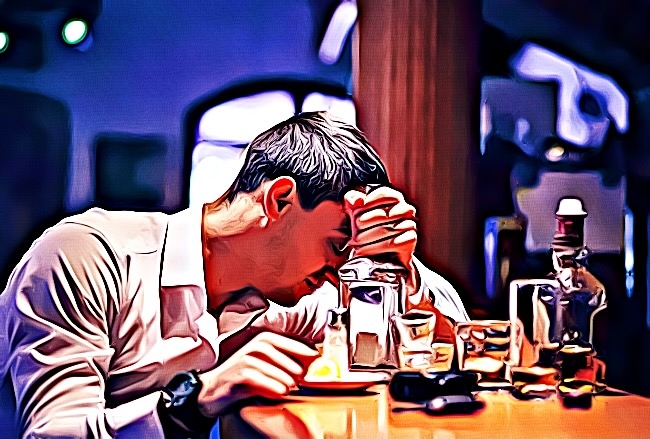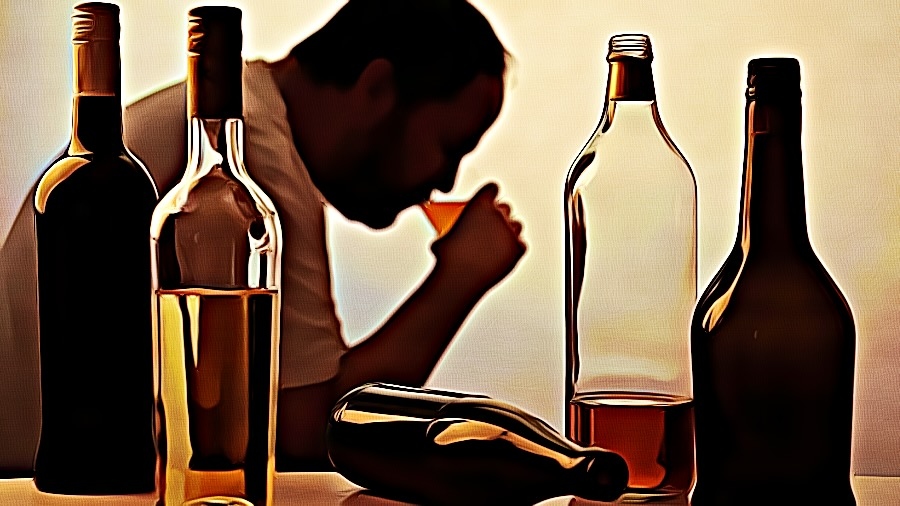Alcohol Intoxication: How to Tell If Someone Is Drunk
Generally, alcohol intoxication is caused by drinking too much alcohol. However, the amount of alcohol needed for intoxication varies from person to person. Many factors influence the likelihood of intoxication, as much as the telltale signs of someone being drunk.
What Is Alcohol Intoxication?
Alcohol intoxication is the state of being under the influence of alcohol. It is a physical and mental impairment caused by the consumption of alcohol. It may also be referred to as alcohol poisoning or alcohol overdose.
Alcohol intoxication occurs when the central nervous system is impaired by alcohol consumption. There are three stages of intoxication:
- Alcoholism: The first stage is called alcoholism, which occurs when the concentration of alcohol in the blood rises above .02 percent.
- Acute Intoxication: The second stage is called acute intoxication, which occurs when the concentration of alcohol rises above .04 percent.
- Apparent Intoxication: The third stage is called apparent intoxication, which occurs when the concentration of alcohol rises above .08 percent.
Each of these stages can be distinguished by the telltale signs of intoxication.
The Signs of Alcohol Intoxication
There are many telltale signs of intoxication, both physical and behavioral. A drunk person may display one or more of these signs.
Some signs of alcohol intoxication include slurred speech, drowsiness, slowed movements, extreme fatigue, vomiting, and decreased coordination.
Here are the physical and behavioral signs of alcohol intoxication:
- Slurred Speech: A sign of intoxication is when a person’s speech is slurred or hard to understand.
- Rapid, Incoherent Speech: A person may speak rapidly and incoherently, using many words that don’t make sense.
- Swallowing Difficulty: A person’s ability to swallow can be impaired due to alcohol intoxication.
- Talking Too Much: A person may use talking to avoid dealing with their situation. They may speak at length but be difficult to understand.
- Seeing Double: A person may experience seeing double.
- Vomiting: A drunk person may vomit.
- Nausea: Alcohol intoxication can cause a person to become nauseated.
- Sensitivity to Light and Sounds: When intoxicated, a person may become overly sensitive to light and sound.
- Headache: A person may experience a headache.
- Poor Coordination: A drunk person may experience poor coordination.
- Forgetfulness: A drunk person may forget how they got to a particular place or even speak.
- Loss of Balance: A drunk person may stumble or lose their balance.
- Lack of Coordination: A drunk person may have trouble standing up or walking.
- Swollen Face and Nose: A drunk person’s face may become swollen.
- Bloodshot Eyes: The eyes of a drunk person may become bloodshot.
If a person displays four or more of the above signs, they will likely experience alcohol intoxication. It is important to note that some of these symptoms can be easily mistaken for more serious conditions, resulting in a missed diagnosis.
How Long Does Alcohol Intoxication Last?
The brain and body continue to process alcohol after a person stops drinking. As a result, alcohol can remain in a person’s system for days, if not weeks. Many factors influence how long alcohol intoxication lasts, including:
- Gender: Women tend to become intoxicated more quickly than men due to the differences in body composition.
- Weight: The more pounds a person has to distribute alcohol, the longer the person is at risk for alcohol intoxication.
- Food Intake: A person who drinks on an empty stomach will face alcohol intoxication sooner than someone who does not.
- Water Intake: One way to prevent intoxication is to drink alcohol with high water content.
- Metabolic Rate: A person with a faster metabolic rate will metabolize alcohol more quickly than someone with a lower metabolic rate.
Alcohol Intoxication vs. Alcohol Poisoning
Alcohol poisoning is an alcohol intoxication that occurs when a person’s blood alcohol concentration is high enough to cause severe damage. Alcohol poisoning requires urgent medical attention.
Alcohol poisoning can be fatal, depending on the level of intoxication and other factors. The amount of alcohol needed to experience alcohol poisoning depends on the person, but it is usually enough to cause slurred speech and drowsiness.

How to Tell If Someone Is Having an Overdose
Alcohol poisoning occurs when a person drinks alcohol that is so high in concentration that it causes severe damage. This can happen accidentally, but it can also result from the intentional over-consumption of a large quantity of alcohol.
In the United States, alcohol poisoning is a common cause of death among young adults and university students.
Signs of a Possible Overdose
When a person is suffering from alcohol poisoning, they experience the symptoms of alcohol intoxication, as well as the following symptoms:
- Floppy Muscles: Since alcohol is a depressant, an intoxicated person is more likely to have floppy, loose muscles.
- Vomiting: A drunk person, or even experiencing the symptoms of an alcohol overdose, may vomit.
- Blue or Purple Lips and Fingertips: As a person’s blood alcohol content rises, their lips and fingertips may turn blue or purple.
- Breathing Difficulties: A person experiencing an alcohol overdose may struggle to breathe.
- Facial Flushing: A person with a high blood alcohol content may experience facial flushing.
- Seizures: Alcohol poisoning can cause a person to experience seizures, the most severe of which is called grand mal.
- Deep Sleep: A person experiencing alcohol poisoning may fall into a deep sleep.
- Unconsciousness: An intoxicated person may move into a state of unconsciousness.
If a person is experiencing any of the symptoms above, they are likely experiencing alcohol poisoning. If that is the case, it is essential to take the following steps:
- Call the emergency services
For safety reasons, call 911 immediately. The quicker a person can receive medical attention, the better.
- Attempt to wake the person
If necessary, you can wake the person by pinching their nose and pouring a little cold water onto their lips.
- Take them to the hospital
While alcohol poisoning may sound severe, it is not as powerful as many possible overdoses. If you have a person suffering from alcohol poisoning, getting them medical attention quickly is the best way to prevent further damage caused by the overdose.
Once the individual is stabilized and has received treatment, they should be monitored closely to prevent relapse.
Alcohol Intoxication and Treatment
Alcohol intoxication requires immediate medical attention. The person experiencing alcohol intoxication should be placed in comfort and then moved to a safe place. A person experiencing alcohol intoxication should also never be left alone.
Once the person is safe, the individual experiencing alcohol intoxication should be observed for a few hours. If the person passes out, they require medical attention. People experiencing alcohol intoxication are at high risk of alcohol poisoning.
Conclusion
Alcohol intoxication is a physical and mental state of being impaired by alcohol consumption. It can be fatal, requiring immediate medical attention. Patients experiencing alcohol intoxication should be handled with care and monitored for a few hours for the signs of alcohol poisoning.
Source: https://www.abc.ca.gov/education/licensee-education/intoxication/

